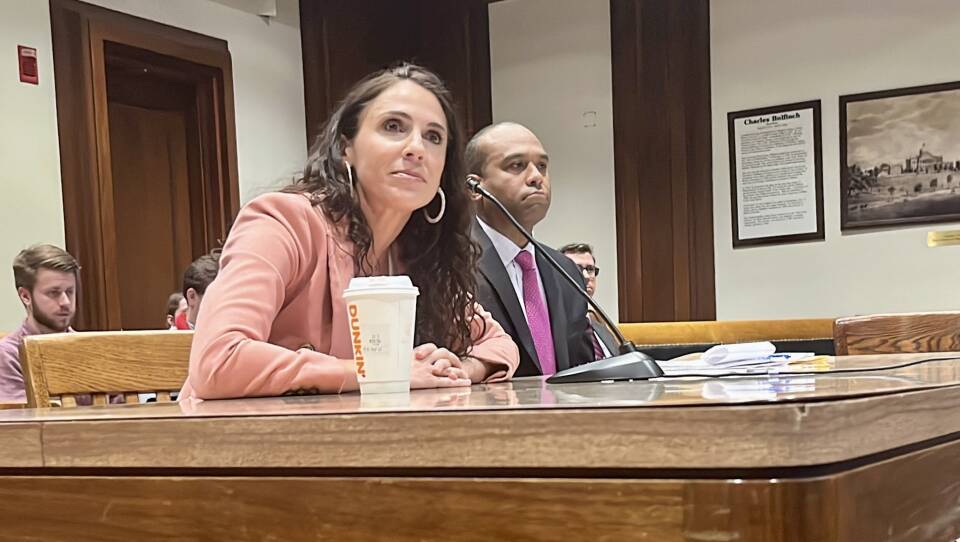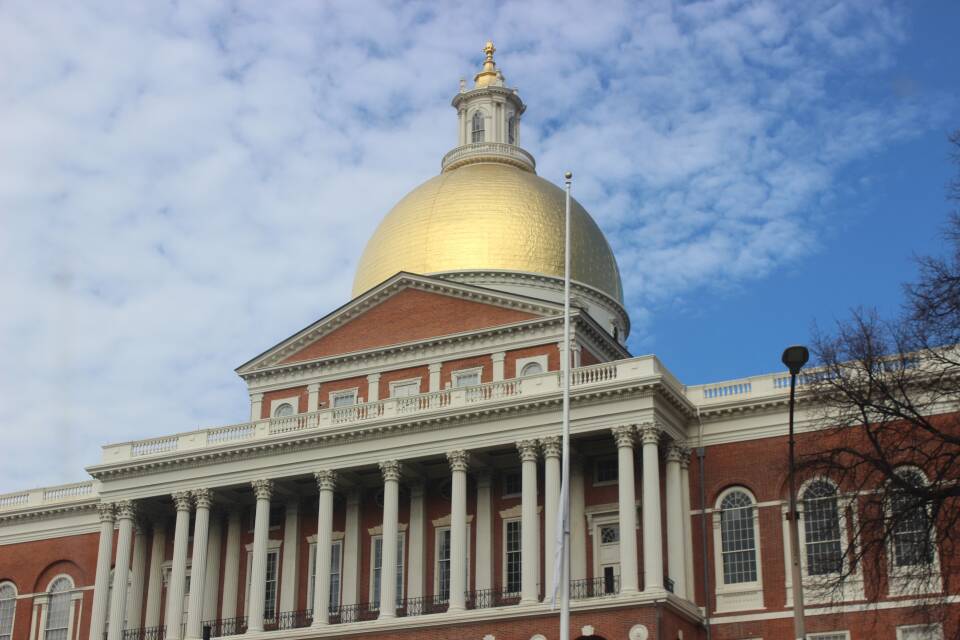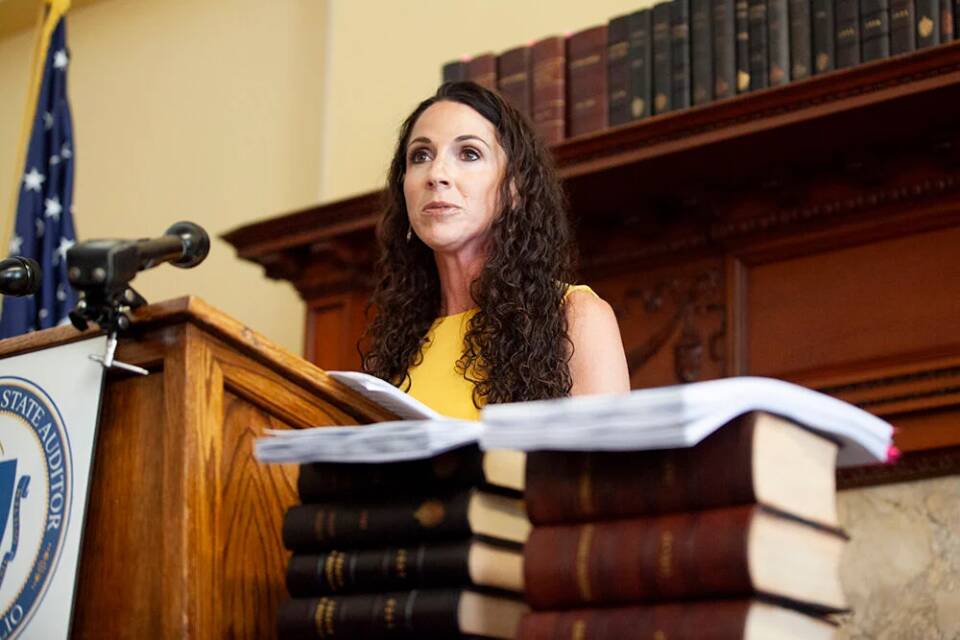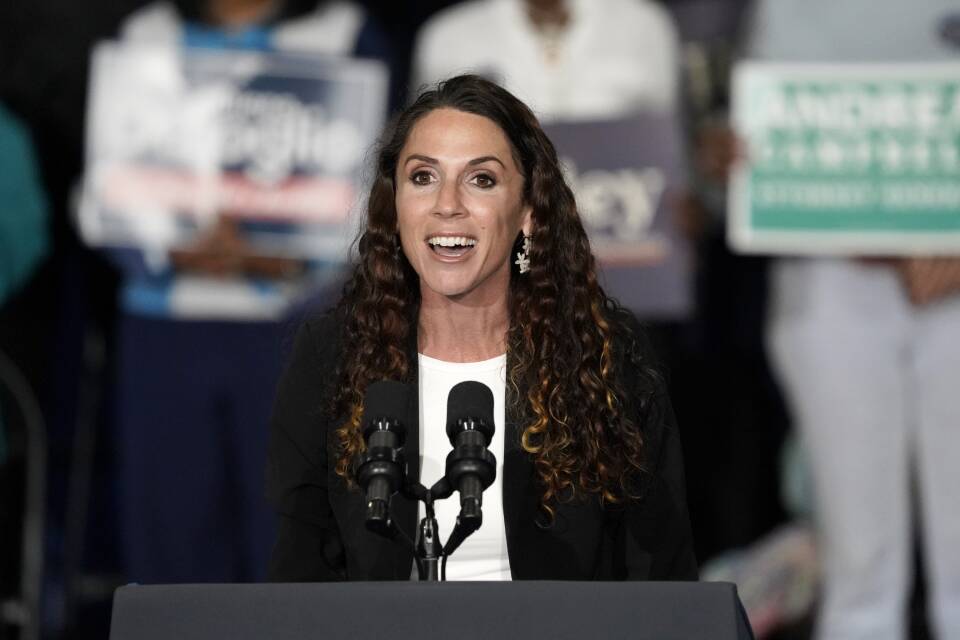State Auditor Diana DiZoglio’s bid to pry open the books of the state Legislature was alternately described Tuesday as an “old-fashioned power grab” that could run contrary to the state’s Constitution and as a way to newly illuminate Beacon Hill’s inner workings to citizens who feel ignored by the system.
DiZoglio, a former state representative and senator who regularly called for more transparency from legislative leadership, was elected auditor in 2022 after a campaign in which she promised to conduct audits of the Legislature, the MBTA and other entities.
But top lawmakers and Attorney General Andrea Campbell have asserted that the state auditor lacks the authority to probe the House and Senate. DiZoglio is seeking to put a question on the Nov. 4 ballot, asking voters to expressly grant her that power.
“We, as one of the least transparent state governments in the entire nation, should be working tirelessly to ensure that we are doing everything possible to increase access for the taxpayers we represent,” DiZoglio, a Methuen Democrat, told lawmakers Tuesday. “It is immoral and unethical to continue to deny taxpayers and our communities access to information that they are trying to get and talk about the legalese of this matter.”
She later added, “You know, at some point, this body's going to need to face reality when it comes to these bogus arguments that are being perpetuated by the leadership team, because the taxpayers of Massachusetts are smarter than the way they are being treated right now.”
A special committee of four senators and four representatives is vetting each of the questions proposed for this year’s ballot, deciding whether to pass them as written, put forward substitute legislation, or take no action. If lawmakers don't act, supporters can proceed to gather the next round of voter signatures required to earn a spot on the ballot.
DiZoglio acknowledged after the hearing that it’s “highly unlikely” legislators will shift course and decide to approve her proposal. She told reporters her next step will be “going right back up to the grocery stores and asking people to sign.”
But academic experts invited to testify by the committee offered sharp warnings, saying that granting such authority to the auditor would upset the separation of powers that’s at the heart of the state and U.S. constitutions.
David King, senior lecturer in public policy at the Harvard Kennedy School, said the question would “transfer powers away from the Legislature, into the unchecked hands of the executive branch.”
“Whether intended or not, the auditor's gambit would deeply damage the balance of powers between the Legislature and the executive branch,” he said. “And cloaked as an appeal to transparency and accountability, the gambit reads like an old-fashioned power grab.”
If DiZoglio's proposal does become law, Northeastern University law professor Jeremy Paul sees “a significant likelihood that Massachusetts courts would be forced to invalidate” it.
“It's one thing to push for greater transparency in legislative operations so that the public is given more information,” Paul, a former dean of the Northeastern law school, said. “It's entirely another to give an elected official inside the executive branch discretion to decide which legislatures can be called to account for what reasons and when.”
DiZoglio, testifying after King and Paul, countered that the “the people that have been disenfranchised by this state Legislature” should be listened to as experts on the issue instead of “cherry-picked speakers that this committee invited to testify this morning for the purposes of political theater.”
New England Legal Foundation President Dan Winslow urged lawmakers to embrace the idea, as did Mary Connaughton of the Pioneer Institute and Paul Craney of the Massachusetts Fiscal Alliance. Former Auditor Suzanne Bump, DiZoglio's predecessor, was among those who spoke in opposition, as did Jerold Duquette of Central Connecticut State University.
Winslow, a former judge and Republican state representative, said he saw “no doubt” voters would pass the question if it ends up on the ballot. He said the Legislature has “the opportunity to shape its own fate” by granting the audit authority or including that permission in part of a broader transparency package.








